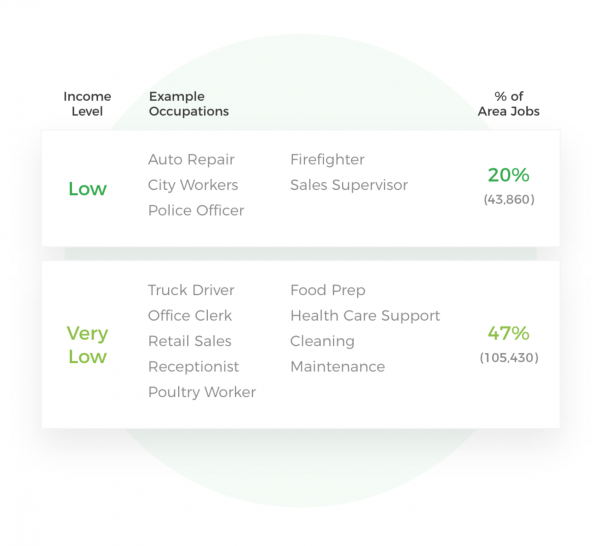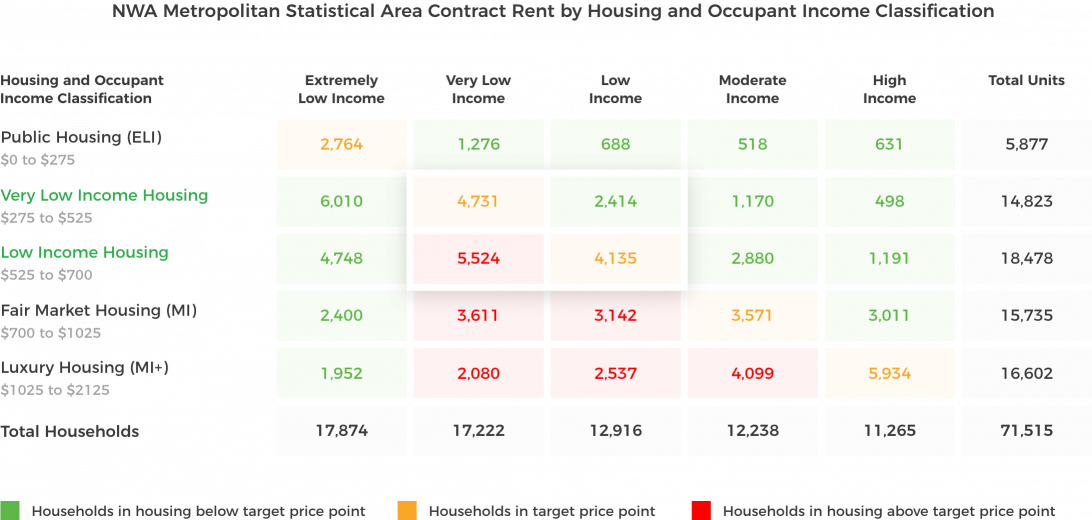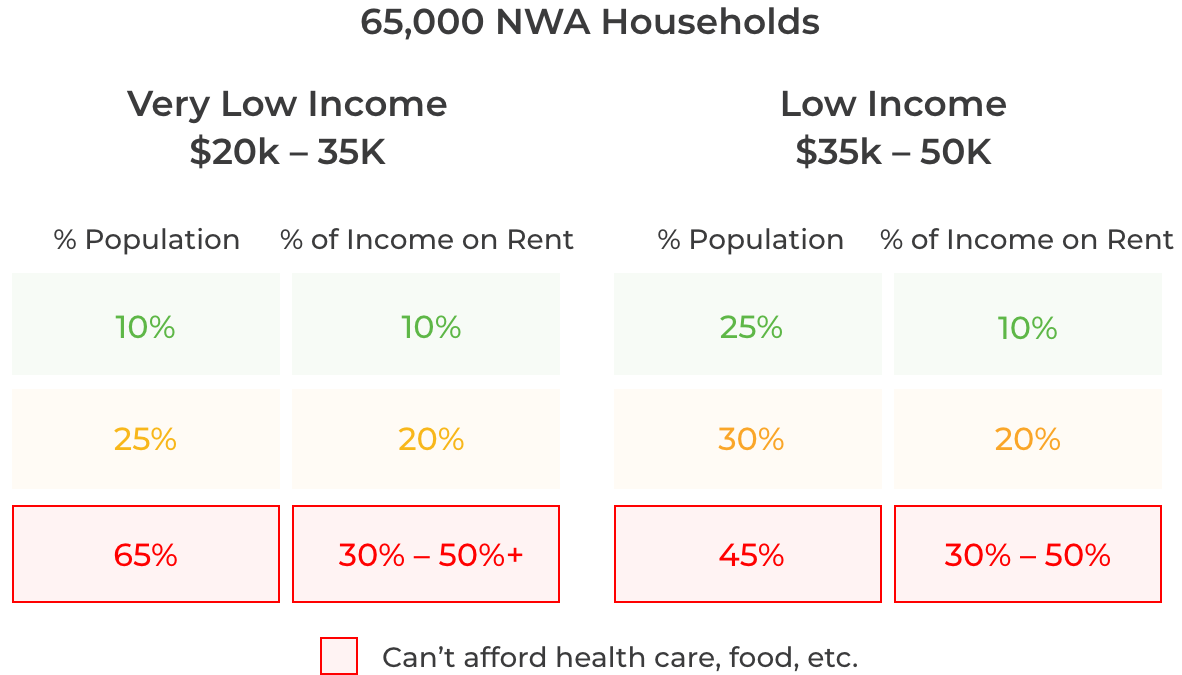This has led to numerous local initiatives being built on only portions of the story. At Excellerate Foundation, we leverage data generated by ourselves and others that allows us to see and draw insights from a more complete picture.
We do so by aggregating federal data, such as the Census, all the way down to the data Hark collects from individuals in our region and then cross-referencing it with the anecdotal information that we hear from our Front Line Advisors.
We also believe that data should benefit everyone. Our charter is to serve Benton, Madison, and Washington counties, so our insights belong to the community.
They work in our hospitals, they process our food and prepare our meals, they help us shop, they care for and educate our children, and they keep us safe. And, all the while, they struggle to care for their own families from day to day.
This is why, while we strive for all people in Northwest Arkansas to thrive, our focus lies on those who are “employed at high risk of instability”. They are Excellerate’s target population.
This represents some 150,000 people who often go unnoticed. They are employed but at high risk of financial instability.
This population is also known as “asset limited, income constrained, employed” or “ALICE”, as the Winthrop Rockefeller Foundation, Entergy Arkansas, and United Ways across the state shared in a recent report called Alice in Arkansas: A Financial Hardship Study.
The report shows that, in 2017, 26%, 39%, and 43% of households in Benton, Washington, and Madison counties, respectively, were ALICE households (approximately 61,000 households total, which aligns with Excellerate’s calculation of 150,000 individuals).


This is unsustainable. A study released in late 2019 by Walton Family Foundation confirms that “housing is becoming increasingly inaccessible to the region’s workers, families, and seniors” due to high demand and rising costs. It also notes that “failure to act could result in widespread instability, including job losses, increased poverty and rising numbers of homeless individuals and families”.
While at first glance, it appears that the problem is primarily with public housing and that low income housing is in surplus, the issue is actually more complex.

At one end of the spectrum are those receiving housing vouchers that often allow them to move from public housing to lower income housing, draining the supply from those lower income families that do not qualify for vouchers.
On the other end, you have those who can afford to live in fair market housing but choose to live below their means in order to save or spend their income on other priorities. As a result, the population for which this housing was meant is often squeezed out of the supply from both ends.

This is also reflected in the data Hark collects from the people it serves, showing that the top issue is the ability to pay for housing. Here are the top needs identified in our community.
35%
Housing
17%
Education
14%
Money
13%
Food
1807
Help Pay for Housing
897
Financial Education
775
Financial Assistance
531
Free Food
453
Help Pay for Food
217
Help Pay for Work Expenses
A large lack of infrastructure and financial instability among renters are the key parts of the problem, but we believe there is more to the solution than just building affordable housing. We must be building communities.
A community is its people: people from all walks of life, people who look out for one another, people who help lift up those who fall and open doors to new opportunities. A community does more for its people than simply keep them off the streets.

Children in low income families must often do without developmental opportunities because parents in low income families often lack the financial resources, time, knowledge or some combination thereof to provide the interaction and learning needed.
However, the environment and fortunes of a child’s family is often just as influential on children’s development as external interventions. Addressing the development of parents/guardians in addition to those of their children will have the best chance of allowing interventions to succeed and strengthening the family as a whole.


